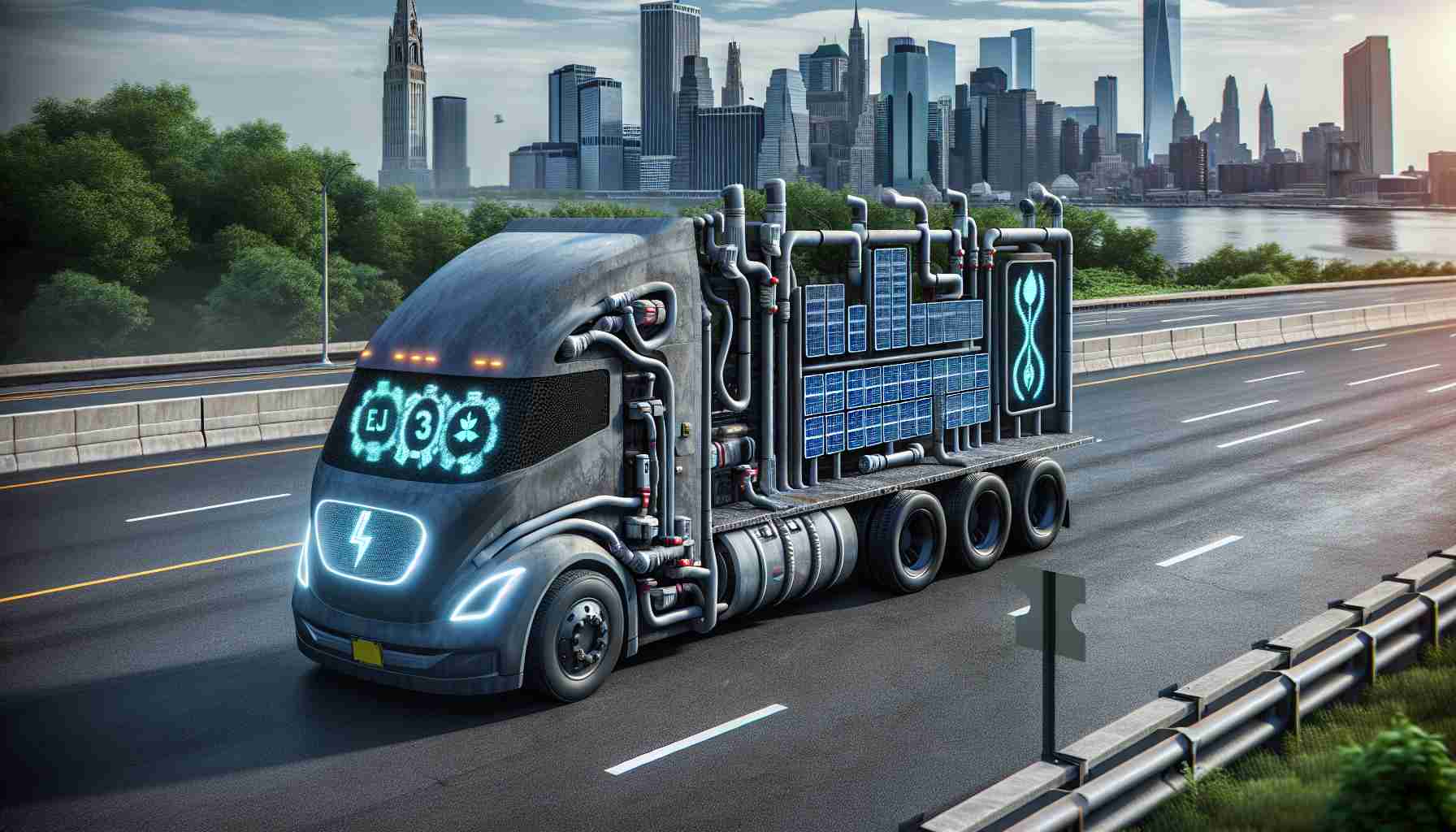
In a recent development, New Jersey’s Assembly committee has agreed to postpone the implementation of its Advanced Clean Trucks regulations by two years. This unanimous decision underscores the complexities surrounding the transition to electric vehicles, particularly in the commercial trucking sector.
The delay comes as the state grapples with the challenges of aligning environmental goals with the realities of the transportation industry. Legislators expressed concerns over the adequacy of infrastructure and resources necessary to support a sudden shift to electric trucks. Recognizing these hurdles, the committee sought more time to ensure a smoother transition for businesses and consumers alike.
In addition to this significant delay, another pivotal piece of legislation gained traction within the same committee. A bill aimed at holding fossil fuel companies accountable for climate-related damages successfully passed its first vote. This legislation is part of a broader trend aiming to confront the environmental repercussions associated with fossil fuels and the urgent need for sustainable practices.
As New Jersey moves forward, the cabinet will likely continue exploring strategies to reduce emissions while reassessing the timeline for electric truck adoption. This dual focus on delay and accountability highlights the ongoing debate about sustainability and the practical steps needed to achieve it in the state. The decisions made in the coming months will be crucial in shaping New Jersey’s environmental and economic landscape.
New Jersey’s Electric Transition: A Balancing Act of Legislation and Sustainability
Introduction to New Jersey’s Electric Vehicle Transition
New Jersey is undergoing significant legislative changes as it navigates the complexities of transitioning to electric vehicles, particularly in the commercial trucking sector. Recently, the state’s Assembly committee decided to delay the implementation of the Advanced Clean Trucks regulations by two years. This decision reflects the challenges in aligning ambitious environmental goals with the operational realities faced by the transportation industry.
Key Reasons for the Delay
1. Infrastructure Readiness: One of the primary concerns leading to the postponement is the current inadequacy of infrastructure to support electric trucks. Stakeholders highlighted the need for more charging stations and maintenance facilities that are crucial for the widespread adoption of electric vehicles (EVs).
2. Resource Availability: Legislators noted that the transition requires not just better infrastructure but also resources, including workforce training and funding for businesses to adapt to new technologies. The delay aims to provide more time for these resources to be developed and implemented effectively.
Legislative Developments
In conjunction with the delay in the Advanced Clean Trucks regulations, another significant legislative initiative is progressing. A new bill targeting fossil fuel companies’ accountability for climate-related damages recently received a favorable vote from the committee. This legislation is a part of a broader movement to hold energy companies responsible for their environmental impacts while reinforcing New Jersey’s commitment to sustainability.
Implications of the Delay and New Legislation
Pros and Cons
Pros:
– Time for Preparation: The two-year delay will allow businesses to plan and adapt to the changes required by electric truck regulations.
– Enhanced Infrastructure: More time can lead to better funding and development of necessary infrastructure.
Cons:
– Potential Setback for Environmental Goals: Delaying regulations could slow down the progress towards reduced emissions and climate targets.
– Increased Climate Risks: Extended reliance on fossil fuels can exacerbate climate issues, potentially leading to further environmental harm.
Future Directions
As New Jersey continues its legislative journey, several key trends are emerging:
– Growing Emphasis on Sustainability: There is a clear shift towards legislation aimed at reducing carbon footprints and enhancing accountability for emissions.
– Market Adaptation: Businesses are likely to begin adapting to electric vehicle technologies, even with implementation delays, in anticipation of eventual adoption.
– Consumer Awareness: As electric vehicle adoption becomes a growing topic, consumer demand may increase for eco-friendly transportation options, impacting market trends.
Conclusion
The decisions made by New Jersey’s Assembly committee regarding the Advanced Clean Trucks regulations and fossil fuel accountability are pivotal in shaping the state’s environmental and economic future. By allowing additional time for infrastructure and resources to develop, New Jersey aims to promote a more sustainable and practical transition to electric vehicles while maintaining accountability for environmental damage caused by fossil fuels. The outcomes of these legislative efforts will be closely watched as they aim to balance urgent environmental goals with the practical considerations of the transportation industry.
For further insights on environmental policies and vehicle regulations, visit NJ Government.



